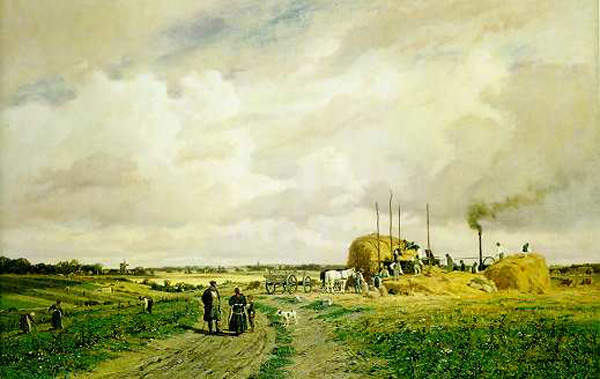Abstract
In the last third of the nineteenth century, Germany’s agricultural
output nearly doubled, despite the fact that industry and commerce grew
even more quickly. One reason for increased output was the mechanization
of farming and the use of new power sources. This painting, titled
Einsatz der ersten Dreschmaschine in
Lankow bei Schwerin im Jahre 1882
[Use of the First Threshing Machine in
Lankow near Schwerin in the Year 1882], is by Carl Wilhelm
Christian Malchin (1838–1923), who mainly painted rural scenes in
northern Germany. Malchin’s painting is too idyllic to be believed—that
is, if we accept contemporary written sources that testify to the
backbreaking nature of the work involved in feeding these mechanical
“monsters.” Textual accounts, such as those by
Franz Rehbein, describe workplace
exploitation and social conflict in the countryside.
